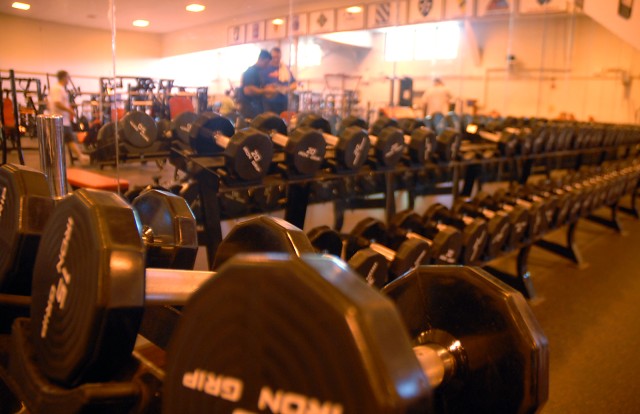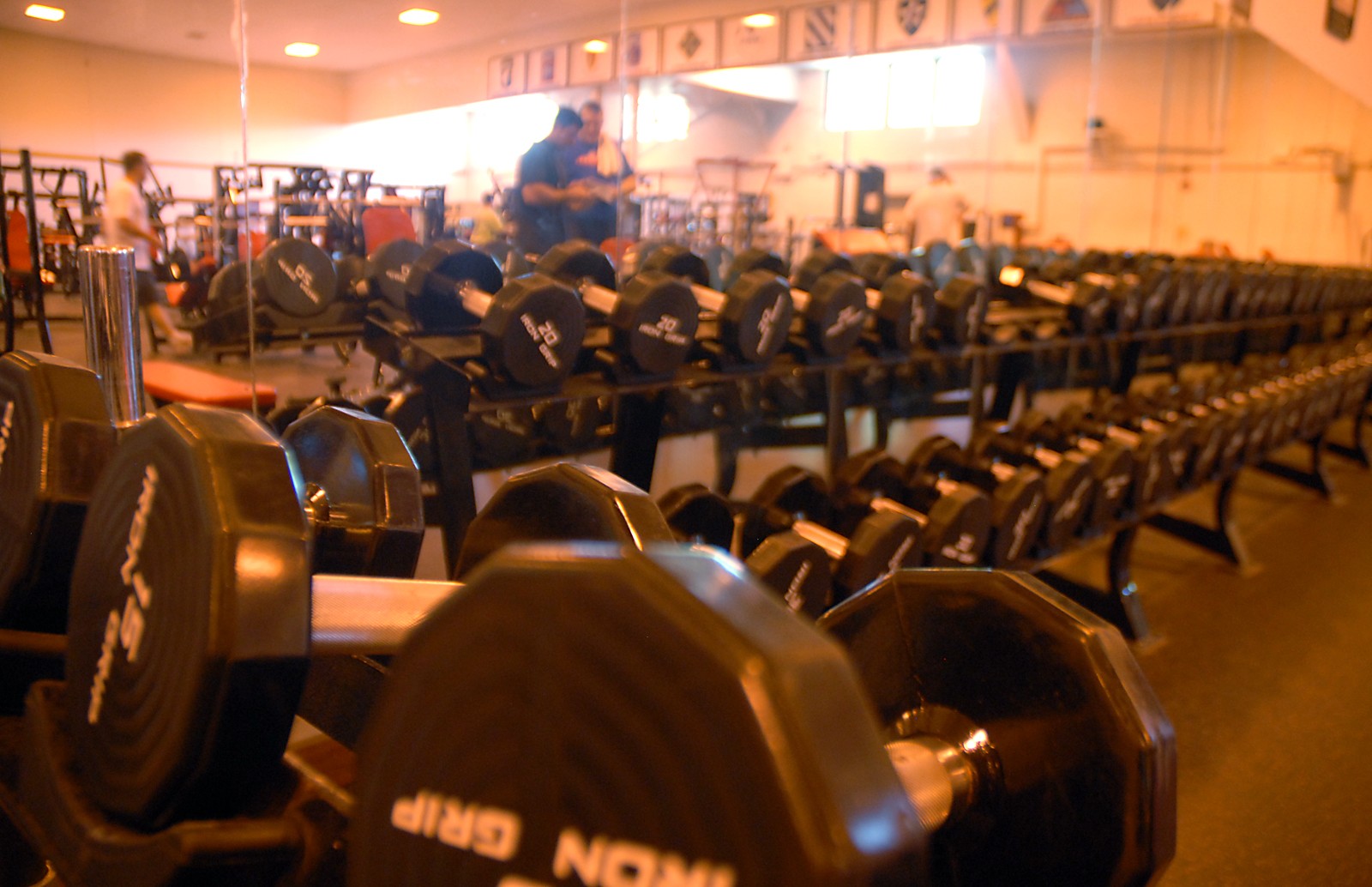FORT LEAVENWORTH, Kan. (July 30, 2009) - Brig. Gen. Rhonda Cornum, director of the Comprehensive Soldier Fitness program in the Army G-3/5/7, spoke with Pre-Command Course students about CSF and several new Army CSF initiatives July 29 at Fort Leavenworth's Eisenhower Hall.
Comprehensive Soldier Fitness encompasses five dimensions of strength: physical, emotional, social, spiritual and family. This year's goal is resiliency, which the CSF Web site defines as the ability to grow and thrive in the face of challenges and bounce back from adversity.
"CSF is a way of looking at Soldier health and Soldier fitness, and training in the Army," Cornum said in a separate interview. "It's basically a way from the time you come into the Army until you leave to assess where you are and improve performance."
Cornum said the Army is in an era of persistent conflict and that multiple deployments have placed the force - and families - under a lot of stress.
"The unbalance and stress on the force has been as hard or harder on the families as it has been on the Soldiers, and so we have a new emphasis on families to do it (CSF assessment) earlier," she said.
Cornum said the purpose of doing CSF assessments is to increase people strength, and ultimately the ability to bounce back from situations.
"I always look at problems as an opportunity to excel, and if we can instill some of that, then it would be a really good thing," Cornum said.
Army Chief of Staff Gen. George W. Casey Jr. and his wife Sheila also spoke with PCC students and their spouses July 29 about the challenges of command, and answered students' questions on several topics including Soldier resiliency and Comprehensive Soldier Fitness.
"What we need to do, especially if you believe as I do that we are going to continue to rotate Soldiers to combat for the next decade or so here, you need to bring mental fitness up to the same level as we give physical fitness," Casey said.
Casey said resiliency training would be provided at all levels of military training, and beginning Oct. 1 the Army will offer Soldiers, families and civilians an online Global Assessment Tool with links to self-help modules.
"There will be (resiliency) modules in every level of Army school, noncommissioned officer and officer, and basic training on up to the Army War College, and we'll gradually increase the capability of our leaders to help others build resilience," Casey said.
Next month, a pilot class of 50 Army NCOs will attend a Master Resilience Trainer course at the University of Pennsylvania in Philadelphia, Pa. Dr. Ted Thomas, director of the Department of Command and Leadership at the Command and General Staff School, said the goal of the UPenn course is to train NCOs in resiliency, and then for those NCOs to train entry-level recruits.
As an expert in course curriculum development, Thomas worked with UPenn to help shape the Master Resilience Trainer course that will be offered to Soldiers by moving the focus of the university's existing resiliency training from children to adult education, then more specifically to an Army focus.
Thomas said the Army's plan is to train 900 NCOs and officers at UPenn over the next year beginning with the first class of 150 Soldiers in November. He said the following year NCOs would instruct recruits in resiliency at an Army installation with UPenn oversight, and for full Army implementation within three years.
Thomas said there are plans to incorporate CSF and resiliency into Intermediate Level Education through blocks of instruction, guest speakers, staff group discussions and assigned readings. He said the intent was not to teach resilience at ILE, but to give students an understanding of the program.
"Our goal is really to look at how this can help our units, and how organizational-level leaders can make their units more effective," Thomas said.
Thomas said several elective courses would be offered for ILE students who want to get additional instruction in CSF and resiliency training, including master resiliency certification at UPenn, mental strength education and CrossFit certification. He said 16 ILE students from class 2009-02 would attend the first UPenn Army-focused Master Resilience Trainer course.
"If the University of Pennsylvania and Comprehensive Soldier Fitness is training a lot of NCOs to train junior enlisted, we want to make sure that the majors, and lieutenant colonels, and battalion commanders, the S3s, the people who put together training programs and training schedules, understand the importance of this program so that they give it the due that it requires," Thomas said.
Thomas said CGSS is exploring CrossFit as a method for teaching the physical dimension of Comprehensive Soldier Fitness to ILE students.
Maj. Dave Maxwell, a student in ILE class 2009-02, began doing CrossFit about a year ago, and is now a CrossFit Level 1 certified instructor with specialties in gymnastics, nutrition and endurance. Last April he established a CrossFit affiliate at Fort Leavenworth for students at CGSC, and said he gets about 100 hits per day to his Web site, www.ironmajorcrossfit.com.
"CrossFit is constantly varied functional movements executed at high intensity," Maxwell said. "The goal is broad, general and inclusive fitness. It's a general physical preparedness program."
He said CrossFit has three groups of exercises: gymnastics, nonstructural, and weightlifting.
Maxwell said CrossFit could contribute to multiple areas of a Soldier's overall fitness, including physical, mental and family. He said CrossFit workouts are difficult and require mental toughness to push beyond the pain in order to complete the exercise, similar to a combat situation when Soldiers sometimes have to push themselves beyond normal physical limits to accomplish their mission.
Maxwell said CrossFit also has programs for parents and children, addressing the family aspect of CSF.
"It's scalable and adaptable to where anyone within the family can do it," he said.
Maxwell visited UPenn's Master Resilience Trainer course earlier this month and returned with recommendations for how the course and CrossFit could best be integrated into the ILE curriculum. He said the same communication and leadership skills taught in the UPenn course could be applied in ILE and throughout the Army, and gave an example of a leader counseling a subordinate.
"That's really the goal (of CSF and Soldier resilience), is to let everybody have an opportunity to reach their potential, whether it's academic, whether it's psychological and emotional health, or whether it's physical fitness," Cornum said.
For more information on Comprehensive Soldier Fitness, go to www.army.mil/csf.


Social Sharing